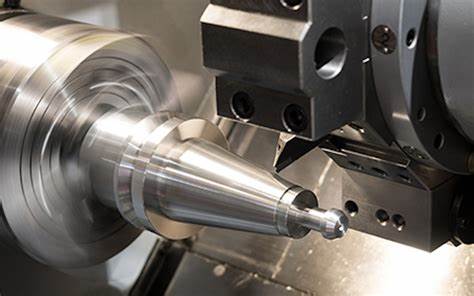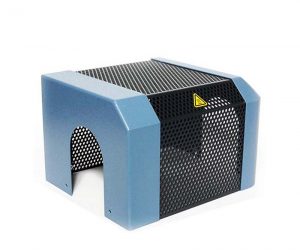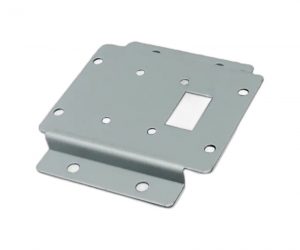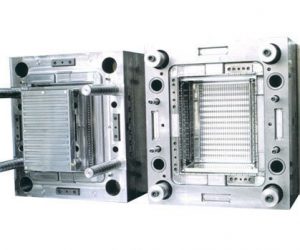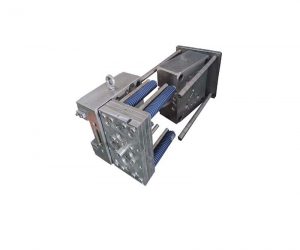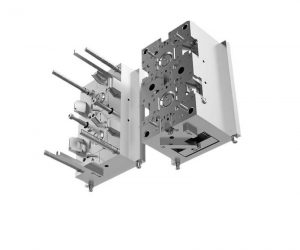Machining services cover a bunch of ways to cut and shape materials into exact, detailed designs. They're super important in lots of fields like making planes, cars, gadgets, medical tools, and more. Here’s a simple guide to what machining services do:
Types of Machining Processes:
- CNC Machining: This is when machines controlled by computers make really precise cuts and moves. It can do things like milling, turning, drilling, and more.
- Milling: Using spinning blades, this process shapes the material into flat or curved surfaces. It can be done by hand or with CNC machines.
- Turning: This makes round parts by spinning the material while a tool cuts away at it.
- Drilling: This is for making holes in the material using special bits.
- Grinding: With abrasive wheels, this smoothens the surface and gets it really tight fits.
- Electrical Discharge Machining (EDM): This uses electric sparks to carve out tricky shapes, especially in tough metals.
Materials That Can Be Machined:
Machines can work on metals like aluminum, steel, titanium, brass, as well as plastics, mixes, and ceramics.
CNC Machining: It's one of the most popular because it's so accurate and can handle complex shapes and lots of pieces quickly.
Prototyping: Machining helps engineers quickly test new designs before making them in big numbers.
Customization: You can get parts made just the way you want, perfect for special jobs.
Quality Control: Good machining places check everything carefully to make sure it meets the standards.
Cost-Effectiveness: Whether you need a few pieces or many, machining can be cheaper, especially for complex parts.
Tolerance and Surface Finish: These services can make parts very precise and smooth, which is crucial for many industries.
Specialized Machining: Some places offer extra cool stuff like five-axis machining for tricky designs or tiny part making.
Secondary Operations: Besides cutting, they might also offer heat treatment, coating, and putting parts together.
Sustainable Practices: Some focus on being green, using eco-friendly methods and materials.
Industry Applications: From car parts to airplane bits, medical tools, and electronics, machining is everywhere.
In short, machining services are key in modern factories, creating top-notch parts from various materials. With new tech and a push for sustainability, they're always getting better and helping industries grow.
Introduction:
Machining services are super important in today's manufacturing world. They can make really complex parts with amazing precision and accuracy. This guide will give you a quick overview of machining services, including the different types, benefits, materials used, where they're used, design tips, quality control, and how to be more sustainable.
First off, there are lots of types of machining services like milling, turning, drilling, grinding, and more. Each one is good for different things. For example, milling is great for shaping flat and curved surfaces, while turning is perfect for making round parts spin.
Next, let’s talk about why machining is awesome. It can create parts that are super precise, which is crucial for many industries. Plus, it can work with a bunch of different materials like metals, plastics, and composites. And it helps with mass production, making things faster and more efficient.
The materials you use also matter a lot. Common ones include steel, aluminum, copper, and titanium. Each material has its own quirks and needs, so picking the right one is key to making sure your part works well and lasts long.
Machining services are used in so many areas. You see them in aerospace, car manufacturing, electronics, medical equipment, and more. Whether it’s making airplane engine parts or smartphone cases, machining is all over the place.
When designing parts for machining, there are a few things to think about. First, decide on the shape and size to meet the product’s needs. Also, consider how strong and durable the material needs to be.
Quality control is a big deal too. This means checking the raw materials, controlling the machining process, and testing the final products. Strict quality checks make sure everything meets the standards.
Lastly, as being eco-friendly becomes more important, machining services need to think about their impact on the environment. This includes saving energy, using materials wisely, and recycling waste. By using greener methods, we can cut down on harm to the planet and push for better sustainability.
In short, machining services are a huge part of modern manufacturing. They help make complex parts with high precision and play a big role in many industries. Understanding the different types of machining, their advantages, materials, applications, design tips, quality control, and sustainability can help us get better at using this essential tech.
What are Machining Services?
Machining services are a set of manufacturing processes that involve removing material from a workpiece to create a desired shape or design. Machining services can be performed manually or using computer-controlled equipment, such as CNC machines. Machining services offer several advantages, including the ability to create complex parts with high precision and accuracy.
The Machining Process:
The machining process involves several steps, including cutting tools and techniques, CNC machining, and secondary operations. The process can be automated for high-volume production or done manually for lower volumes.
Applications of Machining Services:
Machining services are used in various industries, including aerospace and defense, automotive, medical, and electronics. The process is ideal for creating parts with high precision and accuracy, including those with complex shapes and tight tolerances.
Designing for Machining Services:
Designing for machining services requires careful consideration of various factors, including design considerations, material selection, and tolerance and surface finish requirements. Proper design can help reduce costs, improve product quality, and optimize manufacturing processes.
Quality Control in Machining Services:
Quality control is an essential aspect of machining services, ensuring that products meet strict standards for quality and consistency. Quality control measures include inspection and testing, process monitoring, and defect analysis and prevention.

Sustainability in Machining Services:
Sustainability is becoming increasingly important in the manufacturing industry. Machining services offer several opportunities for sustainability, including the use of sustainable materials, energy efficiency, and waste reduction and recycling.
Conclusion:
Machining services are super important in today's manufacturing world. They allow us to make complex parts with amazing precision and accuracy. By getting a grip on the machining process, thinking about design carefully, keeping an eye on quality control, and considering sustainability, manufacturers can really fine-tune their production and make top-notch, eco-friendly products.
When it comes to machining, we use all sorts of tools and equipment to shape and cut materials into exactly the right forms and sizes. This whole process has several steps, like picking the right material, cutting it, shaping it, and then finishing it up. Each step needs to be planned and done with care to make sure the final product is just what we need.
Design is a big deal in machining too. Engineers have to think about things like what the material is like, what tools they'll need, and how precise everything needs to be. If they get these things right from the start, they can come up with designs that work well and are easy to make, which helps avoid mistakes or problems during production.
Quality control is key as well. Manufacturers have to do thorough checks and tests to make sure every part meets the standards. This might mean looking at the parts closely, measuring them to check the size, and testing how well they work.
And let's not forget about being green. Machining can use a lot of energy and create waste, which isn't great for the planet. To help with this, manufacturers can use energy-saving machines, recycle leftover materials, and cut down on emissions.
To sum it up, machining services are vital for modern manufacturing, letting us create detailed parts with incredible precision. By understanding the whole machining process, from design to quality control and sustainability, manufacturers can improve their production and make fantastic, eco-friendly products.
